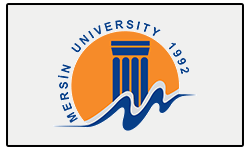Reduction of Chronic Hyperinsulinemia (Insulin Resistance) for the Prevention and Treatment of Cancerous Disease: The Crucial Role of Caloric Restriction
Abstract
Juan Ariel Jara Guerrero
Gene’s expression changes with nutrition and physical activity and hormones signaling like insulin. A Western lifestyle may increase cancer risk through alterations in the metabolism of insulin and insulin-like growth factors. The anabolic signals by insulin or IGF-I can promote tumour development by inhibiting apoptosis, and by stimulating cell proliferation. There is dynamic change in gene expression in response to nutritional availability [1]. A clear association between adiposity, physical inactivity and Western diet, and the risk of incident cancer, cancer recurrence and mortality after “curative” surgery is increasing. Insulin Resistance Status characterized by hyperinsulinemia is associated with an excessive increased risk for a number of malignancies. An increasing clinical, biological and epidemiological evidence sustain that Insulin-IGFs System has been implicated in breast, prostate, pediatric, colon-recto and gynecological cancers, including sarcomas, epithelial cancers, multiple myeloma and melanoma. Chronic hyperinsulinaemia may be a cause of cancers of the colon, pancreas, endometrium, breast, prostate, ovarium, and possibly of the lung, and may predispose strongly to melanoma development; reducing the hormone-vitamin D anticancerigen action [2].
Caloric Restriction slows down May age-related diseases, notably cancer and heart disease, because lowers blood insulin [3]. (1) And reduce oxidative stress directly and by lowering glucose concentrations. Caloric Restriction is a powerful protective therapy in Cancer. Prevention has been known for some time: the mechanism of intermittent caloric restriction that provides greater protection in mammary, colonic and pancreatic tumors is the sustained reduction in insulin excess /insulin resistance. “Mechanism of the increased cancer risk reflects the consequences of the hyperinsulinaemia” [4]. Thus, increased glucose uptake activates known oncogenic pathways to induce malignant phenotype and promotes oncogenesis [5]. A possible primary cause of cancer lies on insulin released from beta pancreatic cells [6]. Recently, the kinase signaling-insulindependent is a modulator of expression of microRNAs, the molecular link between the disturb in metabolism and the oncogenic process [7, 8].
On the contrary, the oncogenic process doesn´t occur during the aging in the Insulin- IGF-1 deficiency due to GH insensitivity and developmental GH/IGF-1 deficiency also exhibit significantly decreased cancer, cellular resistance to genotoxic stressors and marked resistance to chemically induced carcinogenesis [9]. The metabolic dependencies of cancer cells may be exploited for an optimal cancer treatment. Thus, a carbohydraterestricted diet will slow cancer growth in patients by decreasing the secretion and circulating levels of insulin [10]. Accumulative evidence demonstrated a causal role of higher fasting insulin levels in the etiology of cancer risk [11, 12]. It is only when the stem cells are destroyed that a full recovery is possible. Increasing evidence points to the ability of both anti-insulin drugs and bioactive food components to modify the self-renewal capabilities of cancer stem cells [13].
Chronic inflammation contribute to cancer development in hyperinsulinemic patients: in white fat, immune cells and macrophages are continuously activated to secrete proinflammatory factors, which can initiate, promote, and sustain tumorigenesis, by further enhancing, hyperinsulinemia [14]. Targeting cancer cell metabolism has emerged as a novel approach to prevent or treat cancers, and patient's hormonal context plays a crucial role in determining cancer outcome [15]. On the contrary, the more the insulin signaling in cancer cell, (that increase hypoxia and glucogen accumulation), the more invasion, motility and proliferation of cancer [16]. The master oncogene in cancer biology, the hypoxiainducible-factor HIF-1 is strogly regulated in a positive manner by insulin - the hyperinsulinemia/HIF-1α/oxidative stress cascade – [17-19]. Cancer is linked to metabolic disruption [20].
Reducing levels of insulin thoughout fasting ameliorated endogenous circadian clock to ensure physiological processes that support an optimal health: Improves gut microbiome and metabolic regulation, increasing sleep quality and society, reducing systemic and tissue inflammation, adipocyte size, cell proliferation and tumour growth. Reducing chronic insulin excess is therapeutic arm for Cancer, diabetes and cardiovascular diseases.



